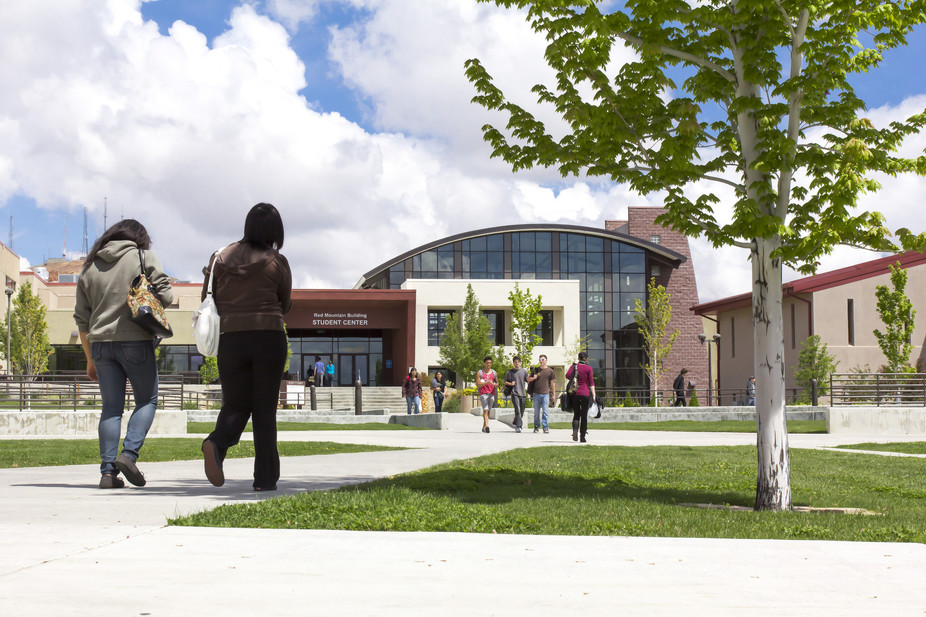2023 Best Master’s in Criminology Programs

Click here to find out more about the ranking methodology that we used to compile this list.
Congratulations! If you represent a college or university that is included in this list, please collect your seal below.
Deciding which college to attend can be a daunting task. For many, it will be the most important decision that they make in their lives. To make an informed decision, you have to consider a lot of variables, such as cost of attendance, financial aid, student/teacher ratio, academics, student life, and more. These factors will either positively or negatively impact the quality of education that you receive.
Do you want to acquire a master’s degree in criminology, but don’t know what institution you should attend? Well, if you are as ambitious as I was in my late teens, then you want to attend a top school, instead of an average or mediocre one. Fortunately, we have already done the legwork for you. To help you find the right school for your interests and goals, we’ve compiled a list of 2022’s best master’s in criminology programs.
What institution did we forget? Leave your thoughts in the comment section below.
The University of Pennsylvania has a master of science degree in criminology. The degree program takes only one year to complete, and it includes classes in concepts such as:
- Quantitative Methods for Policy Analysis
- Proseminar in Criminology
- Research Methods/Crime Analysis
- Evidence-based Crime Prevention
The program has a capstone class for the end of a learner’s study, which is called academic and applied criminology. This class brings in faculty to discuss research along with government officials who consider policy and practice settings. Penn stresses a multidisciplinary approach, drawing in faculty from the schools of business, law, medicine, nursing, and others. Penn has dual degrees to go along with the MS in criminology, including programs with Penn’s law school and the Fels Institute of Government.
The University of Maryland is commonly been referred to as one of the Public Ivies, being a public school that has an educational quality on par with Ivy League schools such as Harvard. The University of Maryland, College Park has a master’s degree program in criminology & criminal justice. The degree program requires completion of 10 graduate-level classes, for a total of 30 credit hours. Some of the classes available in the degree program are:
- Fundamentals for Criminological Research
- General Linear Methods
- Seminar in Criminal Justice
- Master’s Thesis Research
Learners must pass each class with a grade of at least B to count toward graduation. Elective classes must be chosen in consultation with a learner’s faculty advisor. The University of Maryland has several specialized master’s degree programs via its Criminology & Criminal Justice Department. This contains the dual MA/JD degree program with Maryland’s law school. The degree programs are generally intended for people who already have substantial work experience in the field.
Florida has a master of arts (MA) degree in criminology, law, and society. This is a 36-credit hour degree program with either a thesis or non-thesis choice; master’s thesis learners have to demonstrate high quality independent investigation; learner is the non-thesis program should complete equally high quality work, but may not be published.
Florida has a PhD degree program in criminology. Graduates from the MA degree program are eligible for the doctoral degree program, and their 30 credits count toward the 90 credits required for the PhD. Florida also has a dual MA/JD degree program via its law school for learners interested in the legal and academic aspects of criminology.
Northeastern University is a privately run institution offering programs that utilize the co-op method, which mixes in-class learning with real-world experience. Northeastern University has a master of science in criminology and criminal justice degree program. Learners are required to finish 32 credit hours of coursework within one year. This coursework contains classes such as:
- The Criminal Justice Process
- Criminology
- Computational Social Science
- Experimental Integration
Depending on whether a learner enters in the spring or fall semesters, the order that these classes are taken in may alter. Learners will take four classes each semester, with each class being worth a total of four credits. Northeastern also has an Experimental Opportunity choice for this degree, which will extend the length of the degree program by six to 18 months. The experiential opportunities available include the Graduate Co-op experience and Research Lab or Center Experience. Learners take classes during the summer semester as a part of this experiential component.
The University of Texas at Dallas has a master of science (MS) degree in criminology. The degree program is offered via their School of Economic, Political, and Policy Sciences. The master’s is a 36-credit degree program. Graduates from the degree program have pursued careers in:
- Local and Federal Law Enforcement
- Court and Victims Services
- Further Higher Education in Criminology (Doctoral Level)
- Law School
This program is billed as being a multidisciplinary, research-oriented degree program. It was the first criminology programs authorized in the state of Texas. Candidates should have a minimum undergraduate GPA of 3.2 on a 4.0 scale. Learners should have a combined quantitative and verbal score of at least 300 on the GRE.
The University of Delaware is a blended public-privately run institution; the blended designated means that the school is governed privately, but that it obtains public funding as a state-sponsored research institution. The university has around 22,000 total learners and an endowment of more than $1.2 billion. It is the largest institution in the state of Delaware.
Delaware has a master of arts degree in criminology. Learners select either the master’s thesis option or the master’s examination option. Coursework includes:
- Concepts and Approaches in Social Deviance
- Topics in Law and Society
- Criminology and Systems of Criminal Justice
- Application of Criminological Theory and Empirical Tests
The primary difference among the two options is that the master’s examination path requires learners to take two extra elective classes in place of the thesis hours. Delaware also has a PhD degree program in criminology to which graduates of the MA degree program may apply. They also have MA and PhD programs in sociology, which is a shared department with criminology. These two programs have some class overlap and also share professors.
The University of South Florida has a learner population of more than 40,000 and an endowment of over $400 million. Learners may select from 80 bachelor’s degree programs along with over 130 graduate and doctoral degree programs. The University of South Florida has a master of arts (MA) degree in criminology. Learners are required to finish 33 hours of graduate study. Classes will vary depending on the learner’s course of study but may consist of classes such as:
- Criminal Justice and Public Policy
- Quantitative Analysis I & II
- Pro Seminar in Criminology
- Research Methods
Learners may select to work on a course of study that leads to a final holistic exam, a final project, or the completion of a thesis. The final holistic exam path is best for learners pursuing non-research positions in the field of criminal justice. The master’s project suits learners who will seek research positions without pursuing a PhD. Learners who plan to pursue a doctoral degree program generally select the thesis path.
American University is a privately run institution that has an association with the United Methodist Church. American University has a master of science degree in justice, law, and criminology. The degree program entails 33 credit hours of graduate-level study, including 18 credits at the 600-level. Learners are required to select a concentration from the following list of option:
- Jurisprudence and Social Thought
- Justice and Public Policy
- Law and Society
- Terrorism and Security Policy
Learners are required to finish a three-hour holistic examination in their chosen concentration area. Classes in the degree program are split among the foundation, research, and concentration classes. Foundation classes include the concept of justice and seminar on national security policy. Research classes include the rule of law and due process and foundation of knowledge.
The University of Miami has 12 distinct schools and colleges, which help to educate 16,800 learners, a majority of whom are undergraduates. Miami’s endowment is just short of $1 billion, and the school is home to several celebrated sports programs, including in football and basketball. Miami has a master of science (MS) program in criminology and criminal justice. It is a 30 credit-hour degree program, which is split among core, elective, and completion classes. The degree program’s core classes are:
- Social Statistics
- Advanced Research Methods
- Concepts in Criminology and Criminal Methods
- The Criminal Justice System
- Criminology and Public Policy
Completion classes vary based on the concentration that learners select. Available concentrations consist of research and statistics, geographic information systems, legal issues in criminal justice, and public administration. Along with the concentration choices, Miami has several distinct degree paths. Learners who do not wish to work on further graduate study further can finish their degree with a holistic exam. Learners looking for work experience may work on an internship and accompanying paper/report, and learners wishing to continue in academia may work on a master’s thesis.
Sam Houston State University has a master of arts (MA) degree in criminal justice and criminology. It is a 36-credit hour program that starts each year in the fall and is available only on campus. Classes offered in the degree program consist of:
- Critical Analysis of Justice Administration
- Perspectives in Criminology
- Legal Aspects of the Criminal Justice System
- Statistics for Criminal Justice Research
Learners work with their academic advisors to select elective classes that suit their particular career interests. Sam Houston State University also has a PhD degree program in criminal justice and criminology to which master’s graduates may apply. Learners finish their degree program with thesis practicum & thesis classes. Once enrolled in a thesis class, learners must continue to enroll in one until graduation.
Pennsylvania State University is a public doctoral institution with a learner population of almost 100,000, including nearly 15,000 postgraduate learners. Penn State has a master of arts (MA) degree program in criminology. Learners in this program are required to finish more than 30 hours of classwork, along with a master’s thesis. The required classes include:
- Two classes in statistical methods
- A crime theory class
- A class on the criminal justice system
- An elective seminar in sociology
- At least four 500-level substantive criminology classes
The MA candidate will receive/finish the final six thesis credits while working on the thesis, in consultation with a director. Only around five or six new learners enter the degree program each year, which helps to ensure close learner to faculty interaction. All admitted learners obtain a full-tuition waiver. The degree program is limited to full-time learners who wish to work on a PhD. As a result, admission is highly selective.
Washington State University almost 30,000 enrolled learners. WSU has a master of arts (MA) in criminal justice and criminology. The degree program is offered at the Pullman and Spokane campuses. Classes for the degree program consist of:
- Research Methods in Criminal Justice and Criminology
- Foundations of Quantitative Methods in Criminal Justice
- Policing
- Corrections
- Courts
Learners are required to finish a holistic MA final exam along with the core class prerequisites. Learners enrolled in the MA degree program have the choice of pursuing a Graduate Certificate in Global Justice and Security. To obtain the certificate, learners must successfully finish 10 classes in the MA degree program.
Florida State University has a master of science (MS) degree program and a master of arts (MA) degree program offered via the College of Criminology and Criminal Justice. Learners in both programs must finish 33 credits of classwork and sustain a minimum GPA of 3.0. Classes chances consist of:
- Survey of Criminal Justice Concepts
- Statistics I
- Survey of Criminological Concepts
- Theory in Criminology and Criminal Justice
Learners in the MA degree program must finish six hours in humanities classes, which are not required for the MS degree program. There are three degree paths that learners may follow in either degree program: classwork-only, area paper, and thesis. Learners completing the classwork-only path are not eligible for FSU’s PhD program in criminology. The area paper entails the completion of a literature review and report on an area of interest; the thesis is a report of research, generally based on secondary analysis of an existing dataset.
Loyola University New Orleans is a privately run institution that has an association with the Roman Catholic Church and the Association of Colleges and Universities. They have around 5,000 learners, including about 3,000 undergraduates. Loyola has a master’s degree program in criminology and justice, which is a 30-credit online degree program that can be finished in as little as one year. Classes are taught year-round and consist of:
- Seminar in Criminology
- Program Planning, Implementation, and Evaluation
- Directed Readings in Criminal Justice
- Seminar in Criminal Justice
Learners finish their course of study in a master’s research and practicum class that combines their classroom knowledge and the research skills that they have developed across the degree program.
Learners will also take a class in graduate-level statistics, along with in research and statistical methods. Other classes include concepts in criminal behavior and the seminar in criminal justice administration.
George Mason University is the largest research institution in the state of Virginia, with around 35,000 learners and 2,600 academic staff. In addition to offering a diverse range of educational programs at the undergraduate, graduate, and professional levels, George Mason has more than 500 learner groups and 41 fraternities and sororities. George Mason has a master of arts (MA) in criminology, law, and society. This is a 30-credit degree program with a mixture of core and analytical classes. Examples of these classes are:
- Law and Social Science
- Justice Organizations
- Evidence-Based Crime Policy
- Values, Ethics, and Criminal Justice Policy
These classes make up 24 credits of the degree prerequisites. The additional six credits come from the learner’s pursuit of a master’s thesis, which is presented to a committee of three professors.







